The value of P4C has never been higher.
The last few years have seen a pandemic and several years of government making nothing easier and many things harder for schools.
But the importance of independent thinking, children finding their voice, and listening to each other when they do, will never change.
You probably know P4C is proven to make an impact in all of these areas, but...
- You have tried it in the past, but traditional stand-alone sessions won't fit an already crowded curriculum
- You've had training before but there's been a fair bit of staff turnover
- Teachers are wary of taking on “yet another thing”, whatever it is!
So how can you support colleagues to make it work within your existing curriculum?
Philosophy Circles Workshops and In-School Training
Now there is an easier way to make the most of P4C in your school, without having to change your timetable. Why not begin our training pathway - designed to embed P4C into your existing curriculum and across your school.
We partner schools through INSET days and in-school demonstration workshops, with twilight INSET on top. Everything is built around the three principles of Philosophy Circles and how to easily put them into action. It includes mini-books for all staff and topic-based session plans and other resources that will allow your school to embed philosophy across all year groups.
Everything is tailored for your school and there's something for every budget.
What are our options?
INSET
Motivating and interactive INSET - book a full day, half-day, a twilight, or something online.
The "Everything Day"
Kick things off with a whole-school assembly, followed by a parent workshop, then classroom demonstrations that teachers can observe.
And round off the day with a twilight INSET during staff-meeting time.
Philosopher in Residence
Teachers see P4C in action every week over six weeks. Intensive and very impactful!
Arrange a call with Tom
Set up a call with Tom to discuss how we might be able to help you.
Help children find their voices
More and more children arrive in reception scarcely talking at all. And demands from government are squeezing out valuable talk-time from the school day.
"Technoference" seems here to stay. Parents distracted by social media speak less to their children, and children who use devices are less likely to talk to their parents. And the impact is growing: in one school we worked with, children joining reception completely nonverbal recently rose from five, to half to the class.
You'll learn how to overcome the different obstacles children have to speaking, and get (almost) every child talking, including strategies like:
- Playground Confident, Classroom Shy - how to empower children who clam up in the classroom
- Unwrongification - how to free children from the fear of getting it wrong
- Small Talk Big Talk - how to keep them talking while raising the stakes
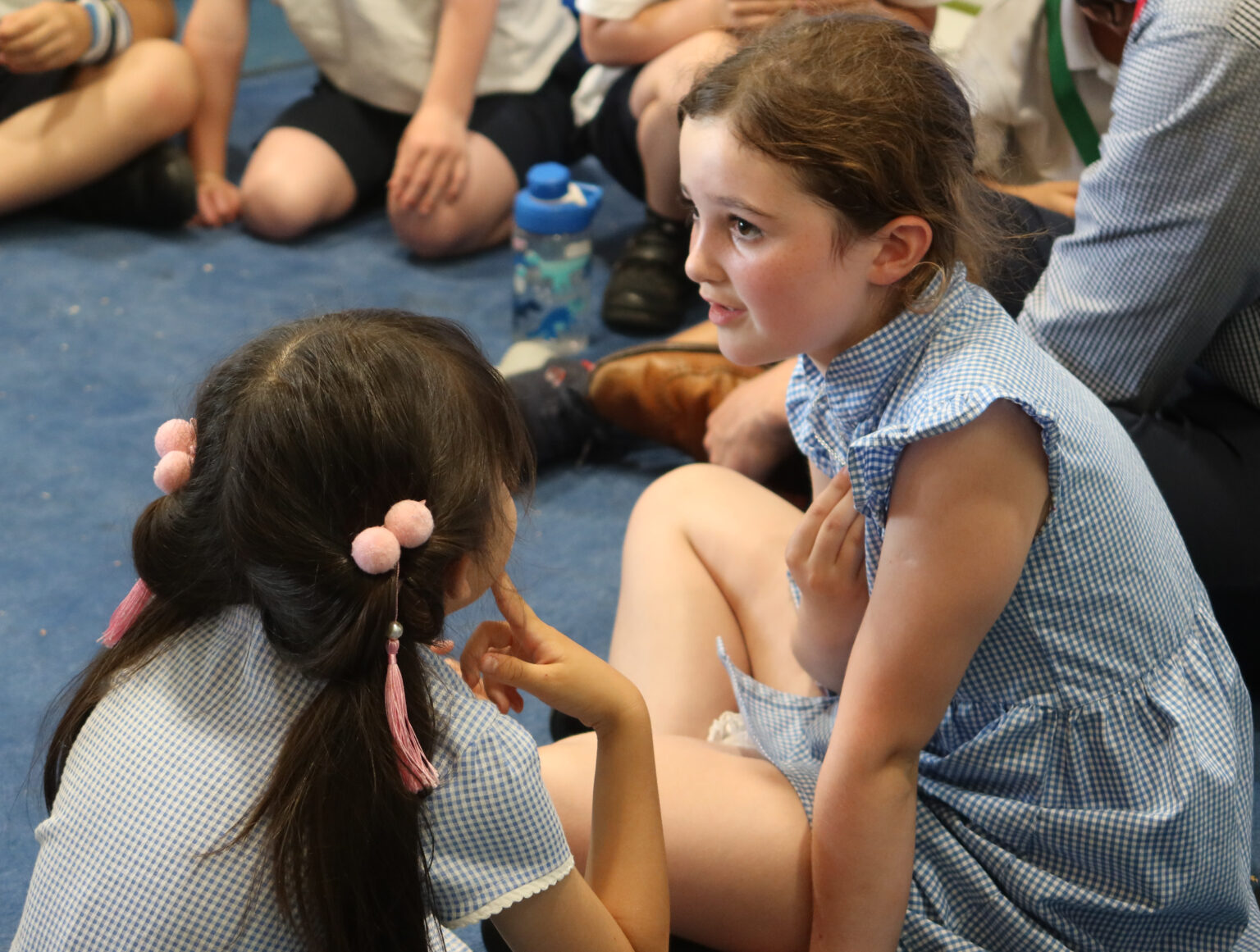
Outside the UK?
We work with schools across the world - visit our dedicated page for international schools.
Looking for a course just for you?
Join our online Embed P4C Masterclass, a collaboration with SAPERE.
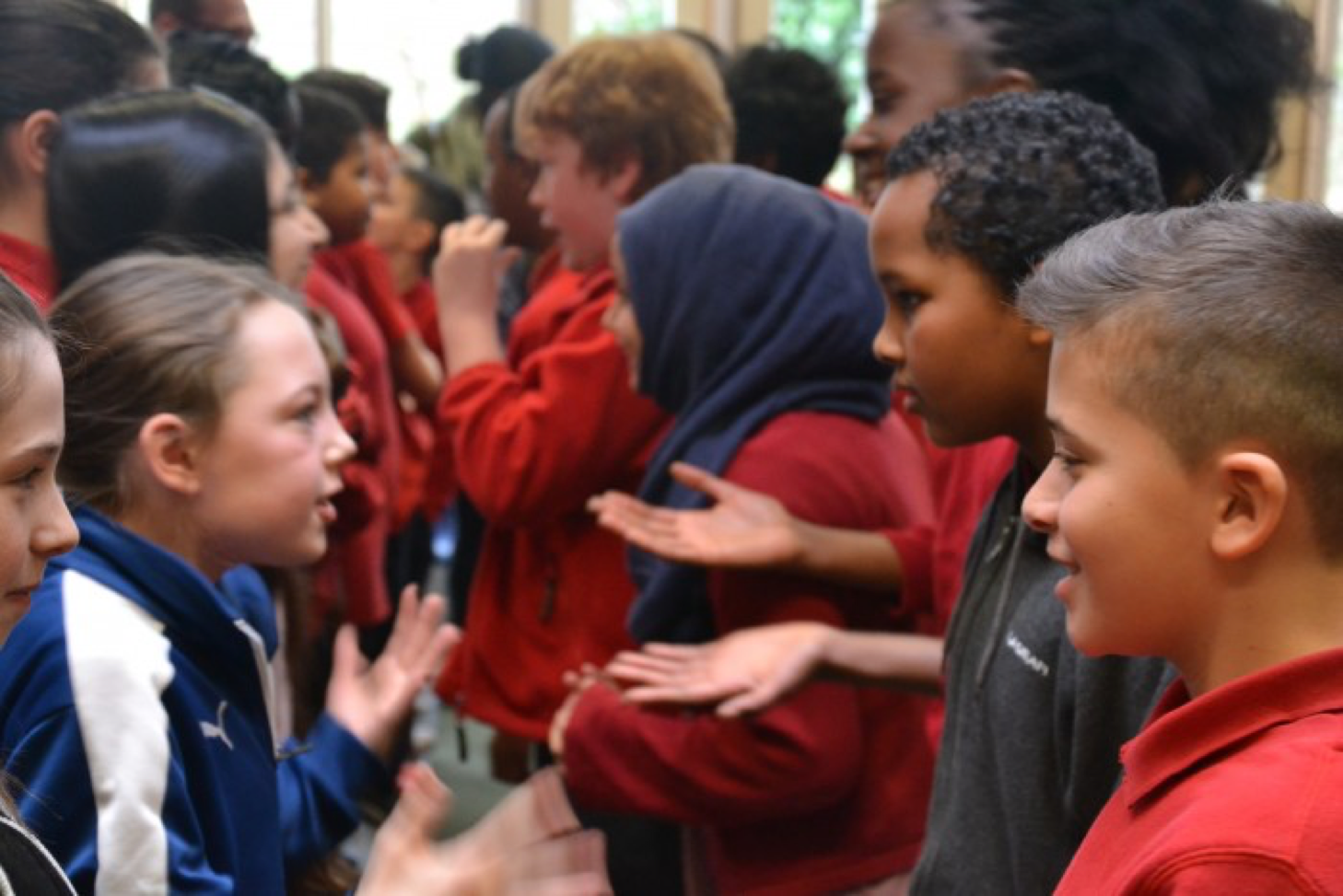
Practical for Teachers
Learn how planning less and letting the questions do the work fosters greater independence and faster progress.
During the course, teachers can see how easy it is to embed P4C, and immediately give it a go themselves.
- Dozens of ready-to-use activities your staff can can adapt for any context
- Simple, memorable principles that connect with your teachers' values
- Tailored resources designed for the EYFS so all teachers buy into the approach
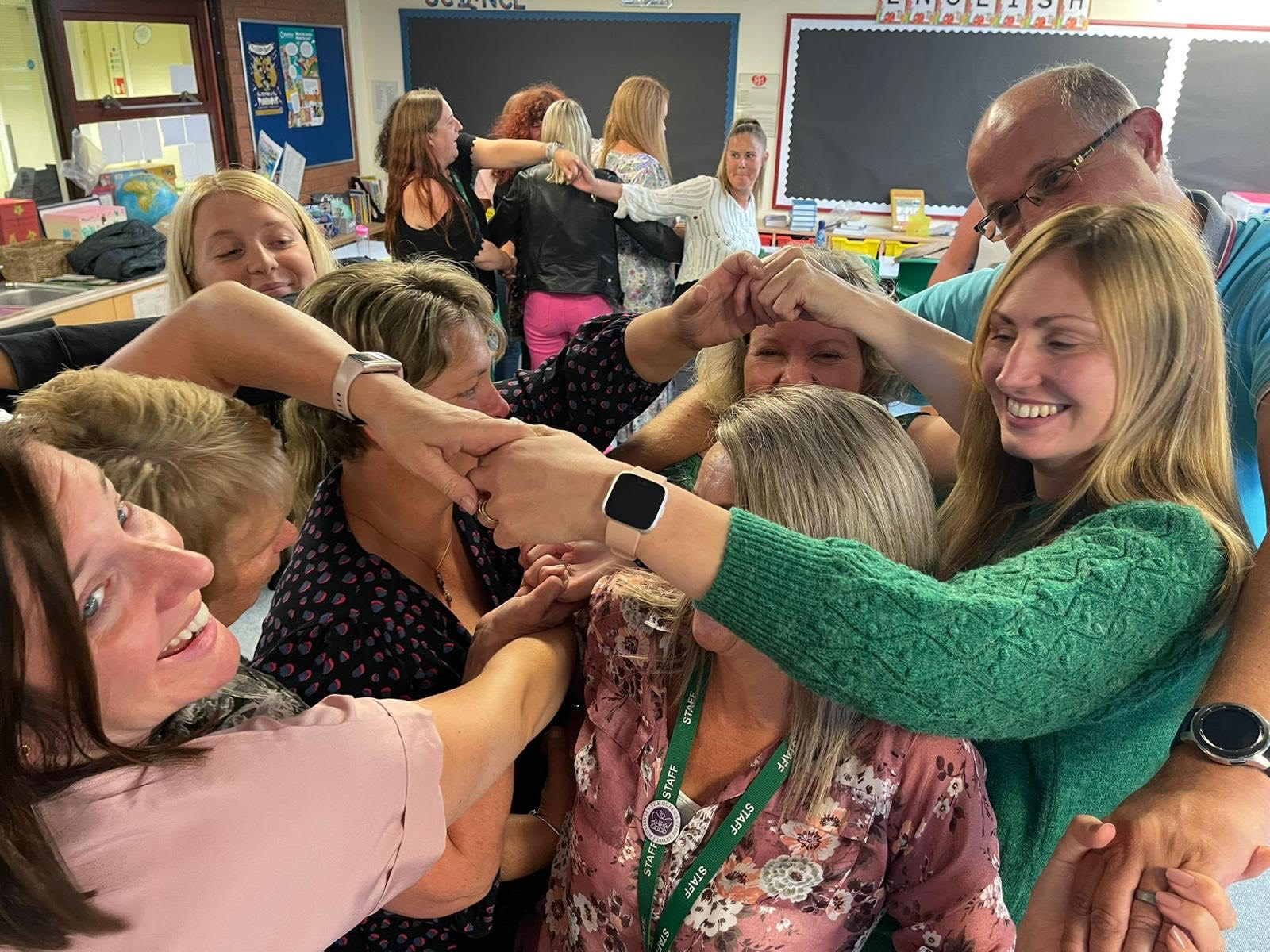
Ready-to-use resources
Lots of ideas from INSET sound great on the day but never see the light of day. New initiatives often get buried under the hectic pace of day to day teaching.
To avoid that...
- Philosophy Circles and Thinkers' Games minibooks
- Session-plans covering the curriculum - so P4C can be embedded within teachers' existing lessons
- 100 Spot and Stripe videos, assessment tools, how-to guides and a wealth of other supporting materials
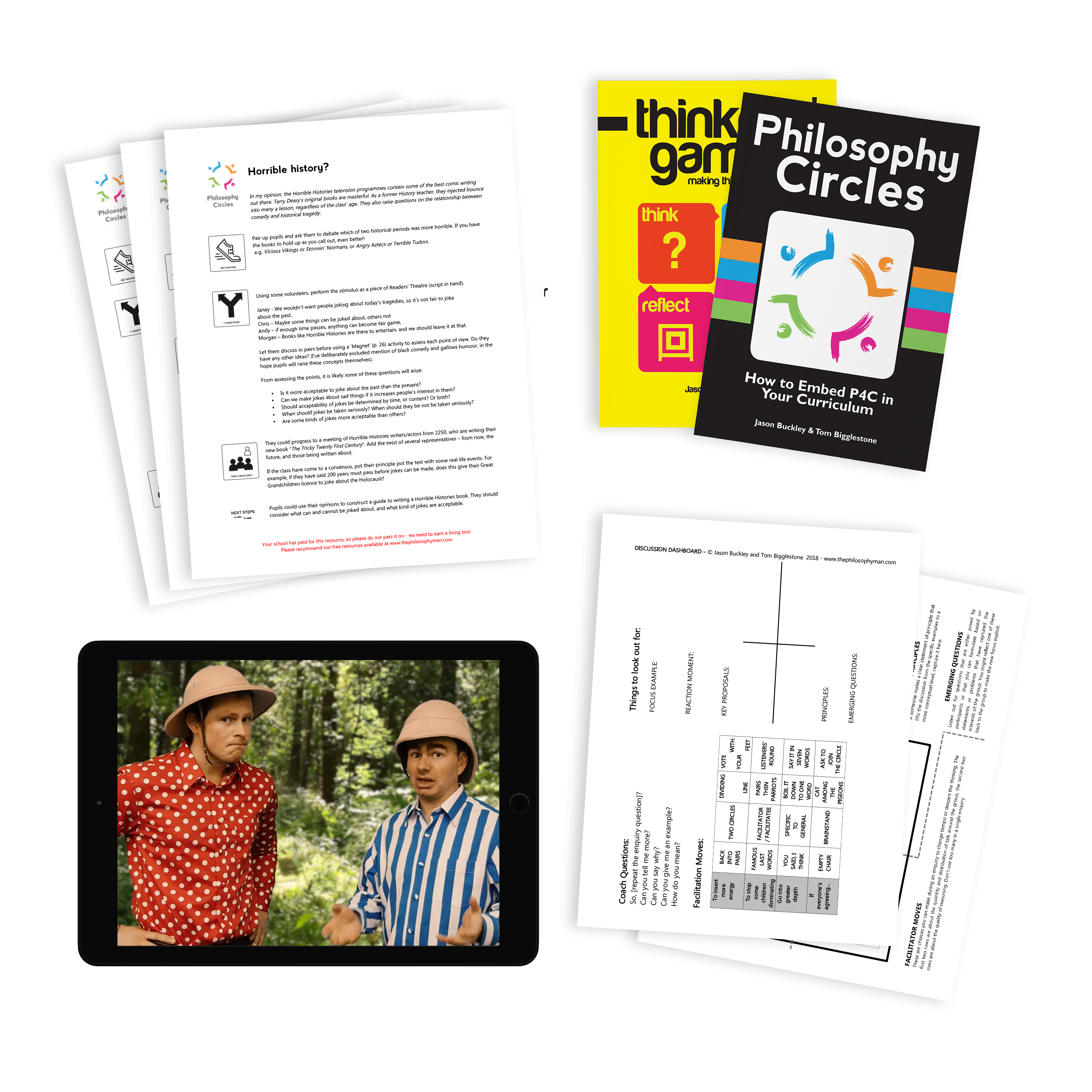
How much will training cost?
Everything we do is bespoke for each school. For the deepest impact, most schools choose a day of P4C training plus at least one workshop day where teachers observe us with their classes. All prices are +VAT and reasonable expenses.
Half days begin at £700+VAT, and full days begin at £1000+VAT.
There's lots of ways to do something within your budget. MATs and clusters often join together for a day to reduce costs and promote collaboration between schools.
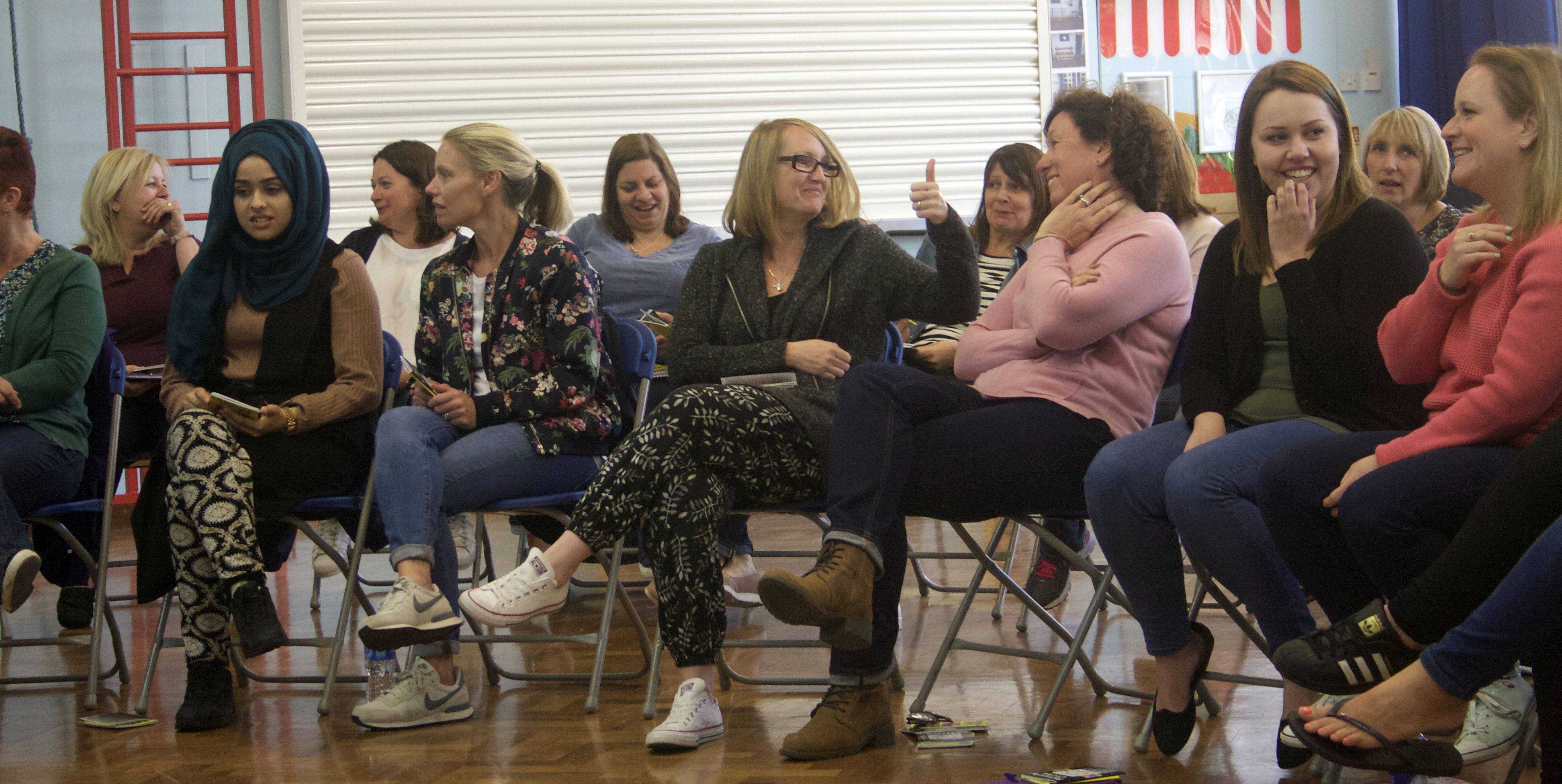
Interested in training?
Contact us today to arrange a chat - choose from any of the options below.
Feedback from our recent P4C training:
"I cannot describe the buzz and vibe from the staff, all down to you."
"You really did create a huge buzz in school, which is a difficult shout on the first day back! You covered everything we wanted out of the training and gave us mountains of material to use in class. I loved the fact you gave each phase some planning time to discuss ideas and plan sessions and then trial them out of colleagues. You have definitely given us some inspiration and I am very excited to see what happens next."
"There was a buzz during the staff meeting, which for any member of staff attending a staff meeting knows this is a rare thing! All the staff said how enthused and excited they felt to get back into their classrooms and try out the methods they had been shown."
"The questions raised interested everyone and there was a real buzz in the room. Our training was full of practical activities and games, with the just the right amount of discussion about teaching techniques interspersed. What an inspiring day!"
"It is us who would like to thank you. It was such an inspirational INSET and the staff were truly excited. The enthusiasm is palpable!"